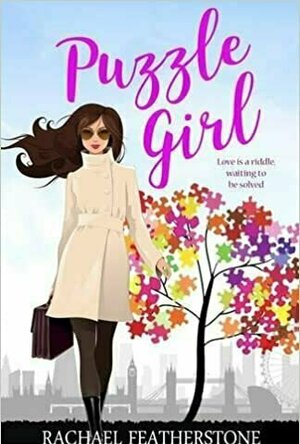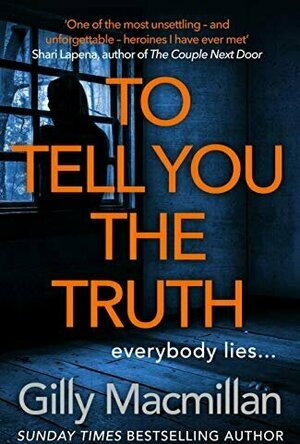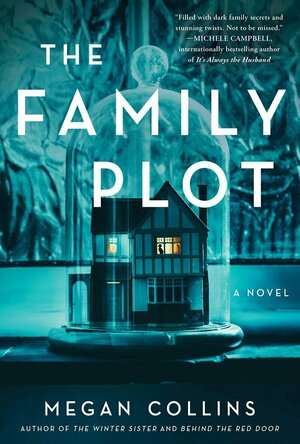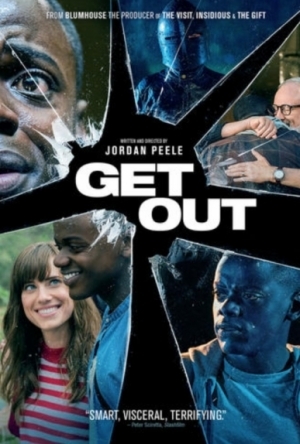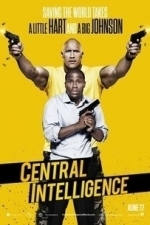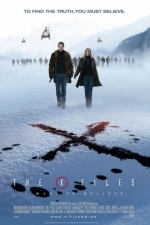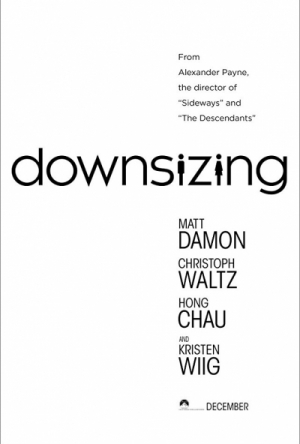Search
Search results
BookInspector (124 KP) rated Puzzle Girl in Books
Sep 24, 2020
The protagonist in this book is Cassy, a very successful accounts director in the social media firm. I loved her and I hated her decisions at the same time. I admired her cleverness and organizational skills (She has a list for everything!), she is a strong and independent woman who has an incredibly funny gay best friend Dan. But no, she needs to mope about her trashy ex-boyfriend and get herself into the most bizarre situations ever (which were really funny, to be honest). I am absolutely jealous to Cassy that she has Dan, it is an amazing friendship they got there. 🙂
The narrative was incredibly funny and got me giggling and saying “Oh NO!” out loud many times. It is just unbelievable how unlucky one person can be! So kudos to Cassy for surviving all that mess, which she brought on herself. 😀 This book is full of twists and unexpected turns, but I knew who the puzzle man was way before things started being obvious. Nevertheless, I kept reading to see what another silly situation Cassy is going to get into, also, I wanted to see whether I was right with my guess. (Just to clarify, I am always wrong with my guesses, ALWAYS! Except for this time.) The narrative is told from Cassy’s perspective and it was fully sufficient for me. I really liked the way the protagonist opened up throughout the pages. She had some deep realizations about her life, and the mistakes she made in her relationships.
I really loved the writing style of this book, it is light-hearted and very enjoyable to read. I loved the setting of this novel as well, books set in London feel very relatable and close to my heart. I really liked the structure of the chapters, they are not very long and filled with lists and text messages which made the whole reading experience more playful and entertaining. The ending was very well deserved and rounded the story very nicely.
To conclude, it is a very funny and enjoyable novel, filled with very well developed, diverse characters and great adventures (kind of). I think it would be a great romantic comedy film, and I hope to see it one day. 🙂 I really enjoyed this novel, and if you are looking for something to lighten up your gloomy evenings, this is definitely a book to go for. Do give this book a go and I hope you will enjoy as much as I did.
The narrative was incredibly funny and got me giggling and saying “Oh NO!” out loud many times. It is just unbelievable how unlucky one person can be! So kudos to Cassy for surviving all that mess, which she brought on herself. 😀 This book is full of twists and unexpected turns, but I knew who the puzzle man was way before things started being obvious. Nevertheless, I kept reading to see what another silly situation Cassy is going to get into, also, I wanted to see whether I was right with my guess. (Just to clarify, I am always wrong with my guesses, ALWAYS! Except for this time.) The narrative is told from Cassy’s perspective and it was fully sufficient for me. I really liked the way the protagonist opened up throughout the pages. She had some deep realizations about her life, and the mistakes she made in her relationships.
I really loved the writing style of this book, it is light-hearted and very enjoyable to read. I loved the setting of this novel as well, books set in London feel very relatable and close to my heart. I really liked the structure of the chapters, they are not very long and filled with lists and text messages which made the whole reading experience more playful and entertaining. The ending was very well deserved and rounded the story very nicely.
To conclude, it is a very funny and enjoyable novel, filled with very well developed, diverse characters and great adventures (kind of). I think it would be a great romantic comedy film, and I hope to see it one day. 🙂 I really enjoyed this novel, and if you are looking for something to lighten up your gloomy evenings, this is definitely a book to go for. Do give this book a go and I hope you will enjoy as much as I did.
Kristy H (1252 KP) rated To Tell You The Truth in Books
Oct 8, 2020
A twisty thriller with a disappointing ending
Lucy Harper is a famous writer, known for her crime fiction stories featuring her beloved character, Eliza. Her work has made her wealthy, something that particularly pleases her husband, Dan, a once aspiring writer who now "manages" Lucy's career and money. Lucy and Dan's life and marriage look perfect from the outside, but they are anything but. Then Dan suddenly goes missing. His disappearance reminds Lucy of another time someone vanished from her life: her younger brother, Teddy, who was lost in the woods very near the house Lucy and Dan now live in. Soon Lucy finds herself reminded more and more of her past, which seems to be quickly and dangerously colliding with her present.
"After all, what kind of person creates a character who walks right out of their books and into their life? He would think I'd lost my mind."
I absolutely adore Gilly Macmillan and her books, but this was not one of my all-time favorites. It's still good, though, and twisty, and I will admit that I didn't guess the (rather bizarre) outcome. However, the ending leaves much to be desired and does not wrap everything up, which left me frustrated. (And seemed to kick off a trend in my recent thrillers, where things end with plot pieces left hanging--I'm not okay with this.)
Lucy is an unreliable narrator extraordinaire--ever since she was small, she's had a best friend named Eliza. Why yes, Eliza happens to be the name of her fictional character, as well. Lucy talks to her imaginary friend, who seems to have untold power over her. If this sounds weird and creepy, it is, and Macmillan does a good job with the eerie oddity of it all and allowing us to wonder if we can trust anything that Lucy--or Eliza--say. Knowing who and what to believe is certainly a central theme here.
Dan, meanwhile, is absolutely despicable, and I was not too sad when he disappeared, honestly. The story alternates between present-day, with Lucy's point of view, and the past, around the time Teddy disappeared. It's certainly compelling. All in all, I would have probably rated this 4-stars if there had been a better ending, versus one that felt rushed and forced, without tying up all the loose ends. This is still a good, atmospheric thriller, with plenty of twists. 3.5 stars. And if you want to read more from Macmillan, I highly recommend The Perfect Girl or her Jim Clemo series--all books that I adore.
"After all, what kind of person creates a character who walks right out of their books and into their life? He would think I'd lost my mind."
I absolutely adore Gilly Macmillan and her books, but this was not one of my all-time favorites. It's still good, though, and twisty, and I will admit that I didn't guess the (rather bizarre) outcome. However, the ending leaves much to be desired and does not wrap everything up, which left me frustrated. (And seemed to kick off a trend in my recent thrillers, where things end with plot pieces left hanging--I'm not okay with this.)
Lucy is an unreliable narrator extraordinaire--ever since she was small, she's had a best friend named Eliza. Why yes, Eliza happens to be the name of her fictional character, as well. Lucy talks to her imaginary friend, who seems to have untold power over her. If this sounds weird and creepy, it is, and Macmillan does a good job with the eerie oddity of it all and allowing us to wonder if we can trust anything that Lucy--or Eliza--say. Knowing who and what to believe is certainly a central theme here.
Dan, meanwhile, is absolutely despicable, and I was not too sad when he disappeared, honestly. The story alternates between present-day, with Lucy's point of view, and the past, around the time Teddy disappeared. It's certainly compelling. All in all, I would have probably rated this 4-stars if there had been a better ending, versus one that felt rushed and forced, without tying up all the loose ends. This is still a good, atmospheric thriller, with plenty of twists. 3.5 stars. And if you want to read more from Macmillan, I highly recommend The Perfect Girl or her Jim Clemo series--all books that I adore.

Super Laser: The Alien Fighter
Games and Entertainment
App
"A worthy addition to anyone's shoot'em-up collection, regardless of whether you're a new-comer or a...
Kristy H (1252 KP) rated The Family Plot in Books
Sep 16, 2021
Dahlia Lighthouse and her siblings were all named after various people murdered by serial killers. Her parents are obsessed by true crime, and the children were raised in an isolated island home known as the "Murder Mansion" to the locals. Each sibling left when they received their inheritance, except for Dahlia's twin brother, Andy, who disappeared when they were sixteen. Dahlia's been gone from home for seven years when she reluctantly returns after her father's death. Once home, the family receives some terrible news; someone is already buried in their father's plot: Andy, his skull split with an ax. As Dahlia tries to work through her grief over Andy and attempt to figure out what happened to him, she begins to realize that it may trace back to her island home and her family.
"I have to find out what happened to Andy. Then I have to leave this place for good."
This is a dark thriller that will appeal to true crime fans. The Lighthouse family embodies true crime--home schooled, the kids write reports on various serial killer victims and they perform rituals related to their deaths. The obsession with death and murder runs deep, and it's certainly unsettling at first. Dahlia's mother lost her own parents in a gruesome way, and it's definitely apparent that this family isn't quite right.
The first half of this book was really fascinating for me. Weird yes, but oddly interesting as you get to know this messed up family and all their dark secrets. Dahlia seems like a sister grieving the loss of her twin brother, and you find yourself wanting to know what happened to him. There's certainly a limited pool of suspects (small island) but the book keeps you guessing.
The second half did not seem as strong as the first. The weirdness factor ratchets up to almost unbelievable. Dahlia's older siblings are annoying and too much. The limited pool of subjects becomes almost cloying, suddenly making things seem too obvious as the plot thickens and become a bit too bizarre. Things get incredibly grim at times.
Still, while this is a strange read, overall it's a page-turner and something kept me reading. It's like a trainwreck from which you cannot look away. Collins definitely includes some good points about the bonds of family and people's obsession with crime and murder. 3.5 stars.
I received a copy of this book from Atria Books and Netgalley in return for an unbiased review.
"I have to find out what happened to Andy. Then I have to leave this place for good."
This is a dark thriller that will appeal to true crime fans. The Lighthouse family embodies true crime--home schooled, the kids write reports on various serial killer victims and they perform rituals related to their deaths. The obsession with death and murder runs deep, and it's certainly unsettling at first. Dahlia's mother lost her own parents in a gruesome way, and it's definitely apparent that this family isn't quite right.
The first half of this book was really fascinating for me. Weird yes, but oddly interesting as you get to know this messed up family and all their dark secrets. Dahlia seems like a sister grieving the loss of her twin brother, and you find yourself wanting to know what happened to him. There's certainly a limited pool of suspects (small island) but the book keeps you guessing.
The second half did not seem as strong as the first. The weirdness factor ratchets up to almost unbelievable. Dahlia's older siblings are annoying and too much. The limited pool of subjects becomes almost cloying, suddenly making things seem too obvious as the plot thickens and become a bit too bizarre. Things get incredibly grim at times.
Still, while this is a strange read, overall it's a page-turner and something kept me reading. It's like a trainwreck from which you cannot look away. Collins definitely includes some good points about the bonds of family and people's obsession with crime and murder. 3.5 stars.
I received a copy of this book from Atria Books and Netgalley in return for an unbiased review.
Bob Mann (459 KP) rated Get Out (2017) in Movies
Sep 29, 2021
“It really doesn’t matter if you’re ‘Black or White”.
Due to a mixture of holiday, work commitments and sickness (I would not wish to inflict my bronchial cough on ANY cinema audience for a while) I haven’t been to the cinema in over a month… shocking. But it has given me a chance to catch up on some of the films in 2017 (and a few from last year) that I hadn’t got to see. So this will be the first of a series of such “DVD” reviews.
“Get Out” was written and directed by Jordan Peele and was his directorial debut. And a hot item on his resume it is too.
Daniel Kaluuya (“Sicario”) plays African-American Chris Washington who, nervously, takes a trip ‘upstate’ to meet the parents of his cute white girlfriend Rose (Allison Williams). The parents, Dean (Bradley Whitford, best known as Josh Lyman from “The West Wing”) and Missy (Catherine Keener, “ Captain Phillips”), are extremely welcoming.
But the weekend coincides with an “annual gathering” of family and friends, and events quickly take a left turn into “The Twilight Zone”, with anti-smoking hypnosis and a bizarre game of Bingo where the win is so substantial that playing becomes a ‘no brainer’. Can Chris ‘Get Out’, with his mind still intact, before it’s too late?
This is a really clever script by Peele. The film baits you into thinking this is some redneck-inter-racial-revenge flick, but actually the colour of the skin is almost irrelevant. (Or is it? This angle is left deliciously vague). Some of the filming is spectacularly creepy, with the hypnosis scene being reminiscent to me of the excellent “Under The Skin”. And never has a teaspoon in a cup of tea been a more devastating weapon.
I seemed to have talked at length this year in this blog on the subject of the “physics of horror”: the story elements hanging together in a satisfying – albeit sometimes in an unbelievable – way. “Get Out” delivers this to perfection, keeping its powder dry until the closing moments of the film before delivering a series of satisfying “Ah!” relevatory moments.
While the ‘physics’ of the film is good the ‘biology’ is bonkers, featuring a plot point from the terrible first episode of the 3rd season of the original “Star Trek” (if you can be bothered to look that up!). But I’ll forgive this, parking my incredulity, to salute what I think is one of the year’s most novel and impressive low-budget indie horror films.
“Get Out” was written and directed by Jordan Peele and was his directorial debut. And a hot item on his resume it is too.
Daniel Kaluuya (“Sicario”) plays African-American Chris Washington who, nervously, takes a trip ‘upstate’ to meet the parents of his cute white girlfriend Rose (Allison Williams). The parents, Dean (Bradley Whitford, best known as Josh Lyman from “The West Wing”) and Missy (Catherine Keener, “ Captain Phillips”), are extremely welcoming.
But the weekend coincides with an “annual gathering” of family and friends, and events quickly take a left turn into “The Twilight Zone”, with anti-smoking hypnosis and a bizarre game of Bingo where the win is so substantial that playing becomes a ‘no brainer’. Can Chris ‘Get Out’, with his mind still intact, before it’s too late?
This is a really clever script by Peele. The film baits you into thinking this is some redneck-inter-racial-revenge flick, but actually the colour of the skin is almost irrelevant. (Or is it? This angle is left deliciously vague). Some of the filming is spectacularly creepy, with the hypnosis scene being reminiscent to me of the excellent “Under The Skin”. And never has a teaspoon in a cup of tea been a more devastating weapon.
I seemed to have talked at length this year in this blog on the subject of the “physics of horror”: the story elements hanging together in a satisfying – albeit sometimes in an unbelievable – way. “Get Out” delivers this to perfection, keeping its powder dry until the closing moments of the film before delivering a series of satisfying “Ah!” relevatory moments.
While the ‘physics’ of the film is good the ‘biology’ is bonkers, featuring a plot point from the terrible first episode of the 3rd season of the original “Star Trek” (if you can be bothered to look that up!). But I’ll forgive this, parking my incredulity, to salute what I think is one of the year’s most novel and impressive low-budget indie horror films.
Bob Mann (459 KP) rated Central Intelligence (2016) in Movies
Sep 29, 2021
Great poster. So-so film.
“Saving the World Takes a Little Hart and a Big Johnson”. I doubt I have ever passed a film poster before and dissolved into paroxysms of mirth, so this film at least wins one award with me.
The story is pretty inconsequential, and used as a framework to build set pieces around. Kevin Hart (“Ride Along”) plays Calvin Joyner – the life and soul of his high school and the guy voted ‘Most likely to succeed’. He’s also a nice guy, sensitively covering the modesty of overweight loser Robbie Wheirdicht (a good Dwayne Johnson lookalike actually played by internet wedding-dance sensation Sione Kelepi) after he’s been ridiculed by bullies in front of the whole school.
But sometimes life doesn’t go to plan and twenty year’s later Calvin may have married his high school sweetheart Maggie (Danielle Nicolet) but has ended up in a low-level forensic accountancy job and not where he wants to be.
Robbie on the other hand has transformed his life and physique to become Bob Stone (Dwayne Johnson), a man with a ‘certain set of skills’ and, as it turns out, a rogue CIA operative. Bob is on the trail of financial codes to help identify the location of the traitorous ‘Black Badger’ who killed his long-term partner Stanton (Aaron Paul). But the Black Badger could be anyone, and the CIA lead (Amy Ryan) suspects it might actually be Stone. With the stakes rising the inept Joyner needs to make a decision on who to trust and who to fear.
The comedy lead Kevin Hart previously impressed with “Get Hard” and raises a few laughs in this one, notably with his attempt at his signature flip twenty years later than he should have attempted it! Johnson’s character is written to be just plain weird and with Johnson’s limited acting range (think Arnie in “Jingle All The Way”) it’s a performance that is on the outlandish side of bizarre. Together the duo make for a likeable pair but this is a very lightweight comedy and is generally a smile-along rather than a laugh-along. It is also uneven in tone, occasionally straying into highly un-comedic territory: a throat-ripping out scene anyone?
The director is Rawson Marshall Thurber who previously directed the better comedy “Dodgeball” and the far worse “We’re the Millers”. So that should set your expectations.
A fairly ho-hum comedy which might entertain you on a long plane flight but is not worth forking out much cash to rent.
The story is pretty inconsequential, and used as a framework to build set pieces around. Kevin Hart (“Ride Along”) plays Calvin Joyner – the life and soul of his high school and the guy voted ‘Most likely to succeed’. He’s also a nice guy, sensitively covering the modesty of overweight loser Robbie Wheirdicht (a good Dwayne Johnson lookalike actually played by internet wedding-dance sensation Sione Kelepi) after he’s been ridiculed by bullies in front of the whole school.
But sometimes life doesn’t go to plan and twenty year’s later Calvin may have married his high school sweetheart Maggie (Danielle Nicolet) but has ended up in a low-level forensic accountancy job and not where he wants to be.
Robbie on the other hand has transformed his life and physique to become Bob Stone (Dwayne Johnson), a man with a ‘certain set of skills’ and, as it turns out, a rogue CIA operative. Bob is on the trail of financial codes to help identify the location of the traitorous ‘Black Badger’ who killed his long-term partner Stanton (Aaron Paul). But the Black Badger could be anyone, and the CIA lead (Amy Ryan) suspects it might actually be Stone. With the stakes rising the inept Joyner needs to make a decision on who to trust and who to fear.
The comedy lead Kevin Hart previously impressed with “Get Hard” and raises a few laughs in this one, notably with his attempt at his signature flip twenty years later than he should have attempted it! Johnson’s character is written to be just plain weird and with Johnson’s limited acting range (think Arnie in “Jingle All The Way”) it’s a performance that is on the outlandish side of bizarre. Together the duo make for a likeable pair but this is a very lightweight comedy and is generally a smile-along rather than a laugh-along. It is also uneven in tone, occasionally straying into highly un-comedic territory: a throat-ripping out scene anyone?
The director is Rawson Marshall Thurber who previously directed the better comedy “Dodgeball” and the far worse “We’re the Millers”. So that should set your expectations.
A fairly ho-hum comedy which might entertain you on a long plane flight but is not worth forking out much cash to rent.
Gareth von Kallenbach (980 KP) rated The X Files: I Want to Believe (2008) in Movies
Aug 14, 2019
It has been over six years since the popular and groundbreaking series, “The X-Files” went off the air leaving some of the series biggest questions unresolved. There was always talk that future films would resolve the alien conspiracy and invasion plotline that fueled the nine seasons of the show, but as time went on, many fans began to wonder if that storyline like so many of the cases Mulder and Scully investigated would remain unanswered.
A dispute between Fox and series creator Chris Carter was often listed as one of the main reasons that the second film had not arrived and thankfully with the resolution of the dispute and the pending writers strike, the new film was approved by the studio and placed into production.
The film picks up years after the series and finds both Mulder (David Duchovny), and Scully (Gillian Anderson), living with one another in a remote home in a rural area. The fact that Mulder is still a wanted man has forced him to lead a life of seclusion, but he still collects newspaper clippings related to bizarre happenings to feed his fascination with the supernatural.
Scully leads a more conventional life, as she has left the F.B.I. to return to her career as a Doctor in a local Catholic hospital.
Scully has been struggling to treat a young boy with a series condition that many of her superiors believe is a lost cause. As if this was not enough concern, Scully is approached by an F.B.I. agent named Agent Drummy (Xzibit), who informs Scully that the F.B.I. is in need of Mulder’s services in finding a missing agent.
Suspecting a trap to lure out Mulder, Scully refutes any knowledge of Mulder, but relays the information to a skeptical and bitter Mulder. The F.B.I. is willing to drop all charges against Mulder and despite his bitterness over his frame up, he agrees simply to help find the agent and clear his name.
Mulder and Scully are introduced to Agent Whitney (Amanda Peet), who is heading the investigation to recover the missing agent. Whitney has ruffled a few feathers at the bureau to bring Mulder back into the mix, but due to some odd facts of the case, and their own lack of leads, they believe Mulder may be the key to unraveling the mystery.
Mulder and Scully soon find themselves in a snow covered, remote area of Virginia where they must content not only with the elements but an ever changing case.
It is learned that a disgraced priest named Father Joe (Billy Connolly), is having psychic visions of the missing agent, and Mulder is tasked with not only helping find the missing agent, but determining the truth behind the visions of Father Joe.
As the case takes one bizarre twist after another, Scully becomes concerned over Mulder’s obsession with the case, as she worries that they are going to lose the new life they have had with one another, and once again be dragged into the old lifestyle they shared, that not only consumed them both, but cost both of them great hardships and suffering.
Scully believes that Father Joe is a sick individual who is faking the visions as his way to atone for his past sins, and believes that her time would be better spent caring for her patient and with Mulder.
Unwilling to let it go, Mulder is determined to find the truth, and will risk everything to uncover the mystery before him.
Writer/Director Chris Carter is to be praised as “The X-Files: I want to Believe” is a daring effort. Carter chose to ignore the standard movie trappings of being bigger and better and toned down the FX and action of the film to instead focus on a more intimate and character driven story.
Carter gambled that the chemistry between Duchovny and Anderson would not only attract fans, but would sustain the film without having to rely on an abundance of gimmicks. To this extent the film succeeds very well as the report between the two leads is amazing and it is a treat to see them both reprising their roles and underscoring that there is still a lot of life left in the characters.
Some may complain that the movie is little more than an extended episode and does not have the action, FX, nor eeriness to have this compare with some of the more memorable moments of the series, but to do so I believe would undermine this very worthy effort.
The film is not only a very clever character driven drama, it has plenty of subtle nods and gems for fans of the series, but holds up extremely well as a stand alone story for those not well versed in the series and it’s many complexities.
The final segment of the film truly shines as not only does it have an ending worthy of some of the best moments of the show, but it challenges the audience with questions of fate, faith, and the nature of life and the roles we are chosen to play.
From the solid acting, eerie locales and lighting and interesting themes of the film, this is a solid and enjoyable film. I only hope we do not have to wait so long for the next one.
A dispute between Fox and series creator Chris Carter was often listed as one of the main reasons that the second film had not arrived and thankfully with the resolution of the dispute and the pending writers strike, the new film was approved by the studio and placed into production.
The film picks up years after the series and finds both Mulder (David Duchovny), and Scully (Gillian Anderson), living with one another in a remote home in a rural area. The fact that Mulder is still a wanted man has forced him to lead a life of seclusion, but he still collects newspaper clippings related to bizarre happenings to feed his fascination with the supernatural.
Scully leads a more conventional life, as she has left the F.B.I. to return to her career as a Doctor in a local Catholic hospital.
Scully has been struggling to treat a young boy with a series condition that many of her superiors believe is a lost cause. As if this was not enough concern, Scully is approached by an F.B.I. agent named Agent Drummy (Xzibit), who informs Scully that the F.B.I. is in need of Mulder’s services in finding a missing agent.
Suspecting a trap to lure out Mulder, Scully refutes any knowledge of Mulder, but relays the information to a skeptical and bitter Mulder. The F.B.I. is willing to drop all charges against Mulder and despite his bitterness over his frame up, he agrees simply to help find the agent and clear his name.
Mulder and Scully are introduced to Agent Whitney (Amanda Peet), who is heading the investigation to recover the missing agent. Whitney has ruffled a few feathers at the bureau to bring Mulder back into the mix, but due to some odd facts of the case, and their own lack of leads, they believe Mulder may be the key to unraveling the mystery.
Mulder and Scully soon find themselves in a snow covered, remote area of Virginia where they must content not only with the elements but an ever changing case.
It is learned that a disgraced priest named Father Joe (Billy Connolly), is having psychic visions of the missing agent, and Mulder is tasked with not only helping find the missing agent, but determining the truth behind the visions of Father Joe.
As the case takes one bizarre twist after another, Scully becomes concerned over Mulder’s obsession with the case, as she worries that they are going to lose the new life they have had with one another, and once again be dragged into the old lifestyle they shared, that not only consumed them both, but cost both of them great hardships and suffering.
Scully believes that Father Joe is a sick individual who is faking the visions as his way to atone for his past sins, and believes that her time would be better spent caring for her patient and with Mulder.
Unwilling to let it go, Mulder is determined to find the truth, and will risk everything to uncover the mystery before him.
Writer/Director Chris Carter is to be praised as “The X-Files: I want to Believe” is a daring effort. Carter chose to ignore the standard movie trappings of being bigger and better and toned down the FX and action of the film to instead focus on a more intimate and character driven story.
Carter gambled that the chemistry between Duchovny and Anderson would not only attract fans, but would sustain the film without having to rely on an abundance of gimmicks. To this extent the film succeeds very well as the report between the two leads is amazing and it is a treat to see them both reprising their roles and underscoring that there is still a lot of life left in the characters.
Some may complain that the movie is little more than an extended episode and does not have the action, FX, nor eeriness to have this compare with some of the more memorable moments of the series, but to do so I believe would undermine this very worthy effort.
The film is not only a very clever character driven drama, it has plenty of subtle nods and gems for fans of the series, but holds up extremely well as a stand alone story for those not well versed in the series and it’s many complexities.
The final segment of the film truly shines as not only does it have an ending worthy of some of the best moments of the show, but it challenges the audience with questions of fate, faith, and the nature of life and the roles we are chosen to play.
From the solid acting, eerie locales and lighting and interesting themes of the film, this is a solid and enjoyable film. I only hope we do not have to wait so long for the next one.
Chris Sawin (602 KP) rated Alice in Wonderland (2010) in Movies
Jun 22, 2019 (Updated Jun 23, 2019)
13 years have passed since Alice first visited Wonderland. She was just a little girl back then. A mad, little girl plagued by a nightmare. Now, almost 20, Alice finds herself thrust headfirst into adulthood yet continues to have the same dream for as long as she can remember. On the verge of being thrown into a marriage she's unsure of, Alice finds herself easily distracted by the simplest things. What would it be like to fly? What if women wore trousers and men wore dresses? Or the fact that wearing a corset is similar to wearing a codfish on your head. The White Rabbit eventually distracts Alice long enough to lead her back down the rabbit hole for a return visit to Wonderland, but Alice is still under the impression that it's all a dream and has no recollection of her first trip there. Since Alice's first visit, however, the Red Queen used the Jabberwocky to relinquish the crown from her sister, the White Queen, and now reigns supreme as the queen of Wonderland. As the creatures of Wonderland debate whether this Alice is the "right Alice" that is destined to kill the Jabberwocky and end the Red Queen's reign, Alice struggles with trying to wake up from this very realistic dream.
As a huge fan of Alice in Wonderland and Through the Looking Glass, I was seriously looking forward to this. The pairing of Tim Burton and Johnny Depp, whether you love it or hate it, has resulted in some fairly creative and successful works. At this point in his career, it's fairly easy to spot something that Tim Burton has done. Like most directors, he has a specific style and Burton's seems to revolve around things that are dark, grisly, and bizarre all rolled into one. So how would Burton's wonderfully grotesque style mesh with Lewis Carroll's delightfully imaginative Alice and her trip to Wonderland? To be blunt, beautifully.
The way Burton went about the subject matter is probably the best way to go. It's an original tale with characters that are already well-established and are admired by a mass audience. That thin line often tread in situations like this between homage and plagiarism isn't quite so thin anymore and mainly follows the homage path. Burton's style also sheds new light on Wonderland or casts a larger shadow on it depending on how you look at it. Beheadings are common, the monsters like the Bandersnatch and the Jabberwocky are gruesome, and the Dormouse has a thing about stabbing creatures in the eye. It's like if Lewis Carroll's vision met a bizarro, cracked out, Grimm's Fairy Tale version of itself.
The bizarre thing is that the secondary characters seem to be more interesting than the primary ones. I found myself drawn to characters like the Dodo Bird, the White Rabbit, the March Hare, the Cheshire Cat, the Executioner, the Red Queen's knights, and the Jabberwocky more than say Alice or the White Queen. That could be due to the fact that I'm drawn to the peculiar and I'm also an aficionado of the ridiculous. However, some characters seemed to be lacking interest (The White Queen) or enthusiasm (Alice) while secondary characters would fill that gap, so it seemed to balance out in the end.
I loved nearly everything about the film ranging from the Red Queen's outlandish reign to Johnny Depp's portrayal of The Mad Hatter to Tim Burton's version of Wonderland itself. Even Crispin Glover's role as the Knave of Hearts was exceptional. There are a few things about the film that didn't sit well with me or that seemed questionable. The addition of Bayard the Bloodhound being one of them. The addition isn't necessarily bad as the character gains sympathy from the audience rather effortlessly, but the character just didn't seem essential to the story like the other characters were. Maybe it's because it's a character Lewis Carroll didn't create. It wound up being something that wasn't good or bad, but leaves you scratching your head a bit. Alice rode Bayard across Wonderland. If you were going to introduce a character into an oddball world, wouldn't something more odd be the answer? Something like an ostrich or a roadrunner? What didn't sit well with me about the film can be summed up with one four syllable word; futterwhacken. What the hell was that? It was like if Regan from The Exorcist decided to start river dancing during a rather serious seizure. The concept wasn't a bad one, but its execution should have been something completely different.
I'm not sure if it was just the theater I was in or what, but it was hard to understand the characters at times. The Mad Hatter and the tea party scene, especially. Every other character was perfectly audible, the music was booming, and the battle scenes were exceptionally loud. The Mad Hatter's mumbling and the March Hare's ramblings are just hard to understand, which is unfortunate as they're two of the things you'll want to hear the most.
Tim Burton's Alice in Wonderland is frame-for-frame Burton's ghastly version of the tale everyone knows and loves. While his particular vision may appear to not be for everyone on the surface, if you're a fan of Burton's previous work, Johnny Depp, the original Alice in Wonderland, or even all three, then it's safe to say you're more than likely going to love this adaptation.
As a huge fan of Alice in Wonderland and Through the Looking Glass, I was seriously looking forward to this. The pairing of Tim Burton and Johnny Depp, whether you love it or hate it, has resulted in some fairly creative and successful works. At this point in his career, it's fairly easy to spot something that Tim Burton has done. Like most directors, he has a specific style and Burton's seems to revolve around things that are dark, grisly, and bizarre all rolled into one. So how would Burton's wonderfully grotesque style mesh with Lewis Carroll's delightfully imaginative Alice and her trip to Wonderland? To be blunt, beautifully.
The way Burton went about the subject matter is probably the best way to go. It's an original tale with characters that are already well-established and are admired by a mass audience. That thin line often tread in situations like this between homage and plagiarism isn't quite so thin anymore and mainly follows the homage path. Burton's style also sheds new light on Wonderland or casts a larger shadow on it depending on how you look at it. Beheadings are common, the monsters like the Bandersnatch and the Jabberwocky are gruesome, and the Dormouse has a thing about stabbing creatures in the eye. It's like if Lewis Carroll's vision met a bizarro, cracked out, Grimm's Fairy Tale version of itself.
The bizarre thing is that the secondary characters seem to be more interesting than the primary ones. I found myself drawn to characters like the Dodo Bird, the White Rabbit, the March Hare, the Cheshire Cat, the Executioner, the Red Queen's knights, and the Jabberwocky more than say Alice or the White Queen. That could be due to the fact that I'm drawn to the peculiar and I'm also an aficionado of the ridiculous. However, some characters seemed to be lacking interest (The White Queen) or enthusiasm (Alice) while secondary characters would fill that gap, so it seemed to balance out in the end.
I loved nearly everything about the film ranging from the Red Queen's outlandish reign to Johnny Depp's portrayal of The Mad Hatter to Tim Burton's version of Wonderland itself. Even Crispin Glover's role as the Knave of Hearts was exceptional. There are a few things about the film that didn't sit well with me or that seemed questionable. The addition of Bayard the Bloodhound being one of them. The addition isn't necessarily bad as the character gains sympathy from the audience rather effortlessly, but the character just didn't seem essential to the story like the other characters were. Maybe it's because it's a character Lewis Carroll didn't create. It wound up being something that wasn't good or bad, but leaves you scratching your head a bit. Alice rode Bayard across Wonderland. If you were going to introduce a character into an oddball world, wouldn't something more odd be the answer? Something like an ostrich or a roadrunner? What didn't sit well with me about the film can be summed up with one four syllable word; futterwhacken. What the hell was that? It was like if Regan from The Exorcist decided to start river dancing during a rather serious seizure. The concept wasn't a bad one, but its execution should have been something completely different.
I'm not sure if it was just the theater I was in or what, but it was hard to understand the characters at times. The Mad Hatter and the tea party scene, especially. Every other character was perfectly audible, the music was booming, and the battle scenes were exceptionally loud. The Mad Hatter's mumbling and the March Hare's ramblings are just hard to understand, which is unfortunate as they're two of the things you'll want to hear the most.
Tim Burton's Alice in Wonderland is frame-for-frame Burton's ghastly version of the tale everyone knows and loves. While his particular vision may appear to not be for everyone on the surface, if you're a fan of Burton's previous work, Johnny Depp, the original Alice in Wonderland, or even all three, then it's safe to say you're more than likely going to love this adaptation.
Bob Mann (459 KP) rated Downsizing (2017) in Movies
Sep 29, 2021
Tiny People, Big Mess.
From the trailer this film looked quirky, funny and interesting and has been on my “looking forward to” list for many months. Oh dear, what a let down.
Matt Damon (“The Martian“, “The Great Wall“, “Jason Bourne“) and Kristen Wiig (“mother!“, “Ghostbusters“) play Paul and Audrey Safranek. Paul is a laid-back and hardworking occupational therapist; Audrey has materialistic ambitions over and above their available finances. The two decide to “downsize” making use of a revolutionary Norwegian invention that reduces humans, and most other lifeforms, to a fraction of their normal size. This offers huge wealth to the normal American, since the cost of living in downsized form within the mini-estate called LeisureLand is tiny in comparison to “big folks”. But all does not go well in the transition (unlike the trailer, no spoilers here) and Paul needs to find a new purpose in life as bigger problems loom.
It’s clearly written to be a social satire, and there are some clever angles to be explored here: everyone publicly positions their downsizing based on ‘environmental issues’ and ‘saving the planet’, but most everyone’s real reason is the lifestyle benefits. Also lightly touched on, but never deeply explored, are the impacts that the downsizing initiative is having on the broader American economy and property markets, with the ‘big people’ questioning why small people should have the same rights and votes as them.
But the film never really gets into the meat of any of this. Worse than that, the movie never settles on what it is trying to be. I think we can write off “Sci-Fi” pretty early on. But is it a drama? A comedy? A love story? A socialist rant? An environmental cri de coeur? The film jumbles all these aspects together and treats each so halfheartedly that none of them get properly addressed.
Not only are the audience confused: none of the actors seem to be too sure why they’re there either. Damon – never Mr Personality – should have been able to develop some chemistry with the feisty and dynamic Ms Wiig, but even these early scenes plod along with you thinking “what a dull film”. Things perk up slightly at the LeisureLand sales fair, where Neil Patrick Harris (“Gone Girl“) and a naked Laura Dern (“Star Wars: The Last Jedi“) glibly try to sell a luxury doll’s house to the assembled crowd. American consumerism in miniature.
But post-downsizing the film crashes back to ‘Dullesville Arizona’ again, but with added depression, requiring Christophe Waltz (“Django Unchanined”, “Spectre“), as a dodgy Serbian entrepreneur Dusan Mirkovic, to over-act manically to try to add any sort of energy into the film (which he is only mildly successful at doing). There’s a rather bizarre supporting role from Udo Kier – looking for all the world like Terence Stamp – as Mirkovic’s ship-owning pal, and an almost cameo performance from Jason Sudeikis (“Colossal“).
Enter stage-left Thai-born Hong Chau as Ngoc Lan Tran, a Vietnamese cleaner. There’s a clever angle here: where “average American Joes” like Safranek can live like kings, but the poor still have to scrape by, living in ‘skyscraper Portacabins’, as the menial classes: there’s no escaping class structures, even when 5 inches tall. Chau sums up the uneven nature of the film, as she mostly plays her lines for laughs but then (in a spectacularly good bit of acting in the midst of, I have to say, some pretty poor hamming) bursts into uncontrollable tears.
Just when you think things are going to limp to a unmemorable close, the film ups and leaves LeisureLand to add a completely bizarre final act. (It’s pretty unusual in the UK for people to walk out of a cinema mid-film, but a couple did so at this point). This segment bears no relationship to the downsizing theme whatsoever, since all the players at this point could be full-sized. Aside from an amusing “50 shades of f**k” speech from Ngoc Lan Tran and a “massive explosion”, this story goes nowhere, says nothing (at least not to me) and merely irritates. Throw in a completely anti-climatic non-ending and I genuinely shared a “WTF look” with the stranger sat next to me!
This is all very strange, since this comes from Alexander Payne, who also directed and co-wrote “The Descendants”, one of the most impressive films of the decade. Jim Taylor co-writes (as he has co-written numerous other films with Payne).
I note that in this morning’s London Times that their film critic, Kevin Maher – someone who’s views I am generally pretty well aligned with – gave it 4 *’s out of 5. I can only assume that he either saw a completely different cut of the film, or he is a lot cleverer than I am and understood amazing sub-texts that completely passed me by! Maybe… but I have a sneaking suspicion that the general viewing public will more share my opinion on this than his.
I was tempted to give this just one star as it was such a disappointment to me, but the underlying concept is a good one: it is just one that has, in my humble opinion, been implemented in a bizarrely slipshod manner.
Definitely not recommended. Go and see “Coco” instead!
Matt Damon (“The Martian“, “The Great Wall“, “Jason Bourne“) and Kristen Wiig (“mother!“, “Ghostbusters“) play Paul and Audrey Safranek. Paul is a laid-back and hardworking occupational therapist; Audrey has materialistic ambitions over and above their available finances. The two decide to “downsize” making use of a revolutionary Norwegian invention that reduces humans, and most other lifeforms, to a fraction of their normal size. This offers huge wealth to the normal American, since the cost of living in downsized form within the mini-estate called LeisureLand is tiny in comparison to “big folks”. But all does not go well in the transition (unlike the trailer, no spoilers here) and Paul needs to find a new purpose in life as bigger problems loom.
It’s clearly written to be a social satire, and there are some clever angles to be explored here: everyone publicly positions their downsizing based on ‘environmental issues’ and ‘saving the planet’, but most everyone’s real reason is the lifestyle benefits. Also lightly touched on, but never deeply explored, are the impacts that the downsizing initiative is having on the broader American economy and property markets, with the ‘big people’ questioning why small people should have the same rights and votes as them.
But the film never really gets into the meat of any of this. Worse than that, the movie never settles on what it is trying to be. I think we can write off “Sci-Fi” pretty early on. But is it a drama? A comedy? A love story? A socialist rant? An environmental cri de coeur? The film jumbles all these aspects together and treats each so halfheartedly that none of them get properly addressed.
Not only are the audience confused: none of the actors seem to be too sure why they’re there either. Damon – never Mr Personality – should have been able to develop some chemistry with the feisty and dynamic Ms Wiig, but even these early scenes plod along with you thinking “what a dull film”. Things perk up slightly at the LeisureLand sales fair, where Neil Patrick Harris (“Gone Girl“) and a naked Laura Dern (“Star Wars: The Last Jedi“) glibly try to sell a luxury doll’s house to the assembled crowd. American consumerism in miniature.
But post-downsizing the film crashes back to ‘Dullesville Arizona’ again, but with added depression, requiring Christophe Waltz (“Django Unchanined”, “Spectre“), as a dodgy Serbian entrepreneur Dusan Mirkovic, to over-act manically to try to add any sort of energy into the film (which he is only mildly successful at doing). There’s a rather bizarre supporting role from Udo Kier – looking for all the world like Terence Stamp – as Mirkovic’s ship-owning pal, and an almost cameo performance from Jason Sudeikis (“Colossal“).
Enter stage-left Thai-born Hong Chau as Ngoc Lan Tran, a Vietnamese cleaner. There’s a clever angle here: where “average American Joes” like Safranek can live like kings, but the poor still have to scrape by, living in ‘skyscraper Portacabins’, as the menial classes: there’s no escaping class structures, even when 5 inches tall. Chau sums up the uneven nature of the film, as she mostly plays her lines for laughs but then (in a spectacularly good bit of acting in the midst of, I have to say, some pretty poor hamming) bursts into uncontrollable tears.
Just when you think things are going to limp to a unmemorable close, the film ups and leaves LeisureLand to add a completely bizarre final act. (It’s pretty unusual in the UK for people to walk out of a cinema mid-film, but a couple did so at this point). This segment bears no relationship to the downsizing theme whatsoever, since all the players at this point could be full-sized. Aside from an amusing “50 shades of f**k” speech from Ngoc Lan Tran and a “massive explosion”, this story goes nowhere, says nothing (at least not to me) and merely irritates. Throw in a completely anti-climatic non-ending and I genuinely shared a “WTF look” with the stranger sat next to me!
This is all very strange, since this comes from Alexander Payne, who also directed and co-wrote “The Descendants”, one of the most impressive films of the decade. Jim Taylor co-writes (as he has co-written numerous other films with Payne).
I note that in this morning’s London Times that their film critic, Kevin Maher – someone who’s views I am generally pretty well aligned with – gave it 4 *’s out of 5. I can only assume that he either saw a completely different cut of the film, or he is a lot cleverer than I am and understood amazing sub-texts that completely passed me by! Maybe… but I have a sneaking suspicion that the general viewing public will more share my opinion on this than his.
I was tempted to give this just one star as it was such a disappointment to me, but the underlying concept is a good one: it is just one that has, in my humble opinion, been implemented in a bizarrely slipshod manner.
Definitely not recommended. Go and see “Coco” instead!
